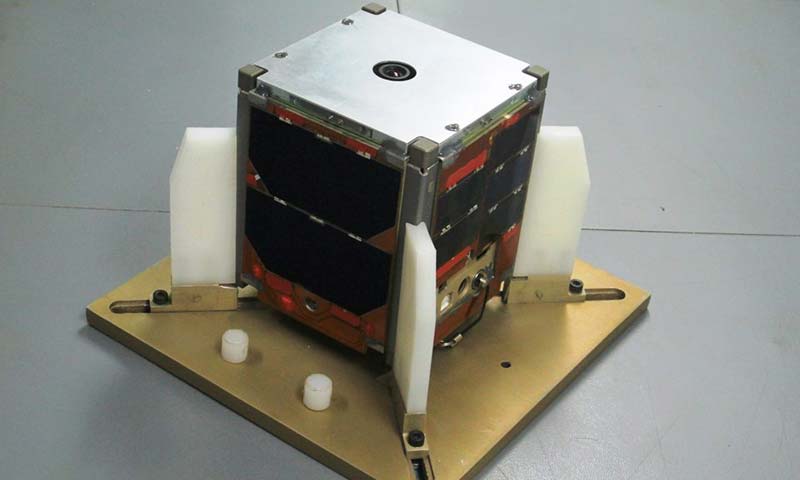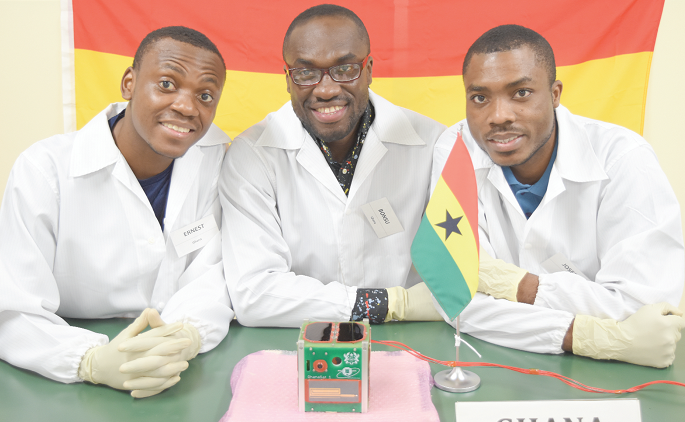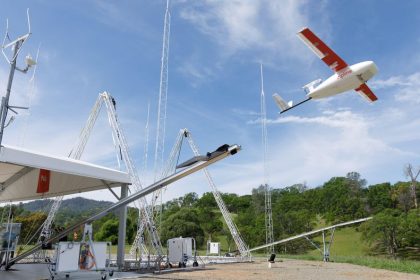Update 2: The GhanaSat1 Satellite Officially Deployed on July 7th
On July 7th, the GhanaSat1 Satelitte was officially deployed into space after a successful launch. The satelitte is said to be operating and functionally and is currently transmitting data.
Update: Looks like the launch has been rescheduled to June 3rd (Saturday) due to bad weather
Live feed at the bottom of the post
Tonight, All Nations University is going to put Ghana on the map….or rather in space.
Ghana’s first satellite, GhanaSat 1, which was developed by a trio of Ghanaian students from All Nations University, is set to be launched into space tonight from the Kennedy Space Center in Florida, USA.
The satellite will be launched to the International Space Station by Space X CRS-11 Cargo Mission and later deployed by a Japanese astronaut aboard the International Space Station.

The developed satellite was handed over to the Japan Aerospace Exploration Agency (JAXA). going through safety reviews and flight fit tests in February this year.
JAXA took delivery of the satellite and handed it over to the National Aeronautics and Space Administration (NASA) in Florida, USA on February 13.
The satellite or Cubesat, weighs 1,000 grams. It has low and high resolution cameras on board to take pictures and provide data that can be used to monitor the coastal areas of Ghana.
Teamwork

The project is two years in the making. It was a partnership between All Nations University and the Kyutech Institute of Technology (Kyutech) in Japan. The project began in October 2015. and was completed in December 2016.
Three people helped lead the project work. The three individuals are Benjamin Bonsu, a PhD student in Applied Science for System Engineering, Joseph Quansah and Ernest Teye Matey. The project was executed under the supervision of Professor Mengu Cho, the Director of Laboratory of Spacecraft Environment Interaction Engineering (LaSEINE) and other faculty members of Kyutech.
Live Feed
If you’re interested in seeing the satellite launch tonight, check back here at 9:55pm to watch it live
Other streaming sites:
https://www.nasa.gov/multimedia/nasatv/index.html#public
Source: Daily Graphic










